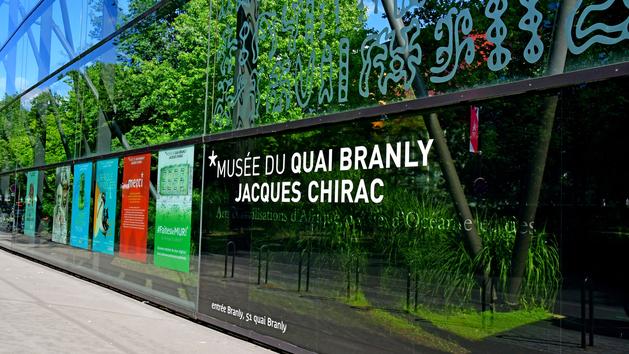Saber, royal seat, statues ... the National Assembly approved Tuesday, October 6 the restitution of cultural property in Senegal and Benin, a gesture that wants to mark a renewal of Franco-African relations, but considered too limited by some and risky by others.
"It is not an act of repentance or reparation,"
declared Foreign Trade Minister Franck Riester, who came to defend the bill allowing these refunds.
The return to their country of origin of these
"spoils of war"
from the French colonial era reflects a
"new ambition in our cultural relations with the African continent"
, he insisted.
The text was adopted unanimously by the deputies at the end of the evening, with 49 votes for and none against.
It must now be considered by the Senate.
Read also: Restitution: Benin is asking for time
The bill responds to a desire to rebuild cultural relations with Africa expressed by President Emmanuel Macron, in November 2017, in Ouagadougou, Burkina Faso.
The transfer to Benin concerns 26 pieces from the “Trésor de Béhanzin” resulting from the looting of the Abomey palace in 1892. They are today at the Quai Branly-Jacques Chirac museum in Paris.
Senegal must recover a saber and its scabbard attributed to El Hadj Omar Tall, a great West African military and religious figure of the 19th century.
Held by the Musée de l'Armée in Paris, this saber is exhibited in Dakar as part of a long-term loan.
The bill punctually derogates - without abolishing it - to the inalienable nature of the collections of French national museums, which are among the richest in the world in pieces from all periods and all backgrounds.
Its detractors see in this the risk of encouraging an uncontrollable revival of requests for restitution which regularly poison international relations, like Greece which in vain calls for the return of the Parthenon friezes exhibited at the British Museum.
A reflection on the role of museums
While supporting the text, MEP Constance Le Grip (LR) stressed that it
"raised questions, concerns"
about a possible
"ripple effect which would see refunds multiply"
.
Franck Riester replied that these
“specific”
transfers
do not
“call into question the universalist approach of French museums”
.
The rapporteur Yannick Kerlogot (LREM), however, recognized that it was to be expected
“an increasing number of requests”
for the return of works to their countries of origin.
A delicate prospect in more than one respect: he notably underlined the difficulty sometimes in distinguishing between spoliations and works legitimately acquired by
"gift, barter or purchase"
.
Some MEPs deplored the still too limited nature of these piecemeal refunds.
Bruno Fuchs (MoDem) therefore supported the idea of a
“framework law”
allowing
“more frequent and less complex returns to be implemented”
.
The president of Benin Patrice Talon himself pleaded in the weekly
Jeune Afrique
for a
"general law"
opening the way to a
"global restitution on the basis of a precise inventory"
.
Read also: Restitution of African cultural heritage: "A concession made to CRAN and post-colonialists"
The deputy of the French abroad M'Jid El Guerrab for his part proposed the restitution of the burnous of Emir Abdelkader,
"hero of the resistance to the colonization of Algeria"
in the XIXth century, preserved in Paris.
But Franck Riester told him that this historic coin had been offered to France by the emir's own son.
Paris has already returned, under various legal terms, works of art in Laos, a statue stolen from Egypt in 1981, 21 Maori heads from New Zealand or even 32 gold plates to China, had listed the last week the Minister of Culture Roselyne Bachelot.
These restitutions are part of an
"international movement which is becoming more and more important"
, and a
"reflection on the role of museums in the world"
, she also argued.
Referring to the future, the rapporteur Yannick Kerlogot pleaded for a
"balance"
between
"the legitimate demands"
of African states, and
"the universalist dimension of Western museums"
.







